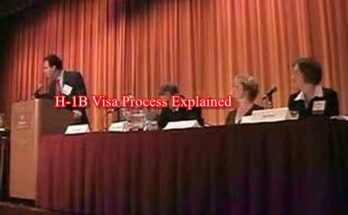Securing Your Legacy: The Role of an Estate Planning Lawyer Estate planning is the process of arranging the management and distribution of a person’s assets after their death or during incapacity. It’s an essential part of personal finance that ensures your assets, such as property, savings, and investments, are passed on according to your wishes. It can also provide for the care of minor children, reduce taxes, and avoid legal disputes. To navigate the complexities of estate planning, many people turn to an estate planning lawyer—a legal professional specializing in this area.
Securing Your Legacy: The Role of an Estate Planning Lawyer. An estate planning lawyer helps individuals and families create legal documents, such as wills, trusts, powers of attorney, and health care directives, that define how their assets should be managed and who should make decisions on their behalf in case they are unable to do so. This guide, aimed at beginners in education, will explain the role of an estate planning lawyer, the key elements of estate planning, and the steps involved in creating a solid estate plan.
Understanding Estate Planning
Estate planning is the process of anticipating and arranging for the disposal of an estate, typically to minimize legal issues, taxes, and ensure that assets are transferred efficiently to beneficiaries. The term “estate” refers to everything you own: your home, savings, investments, and personal possessions.
The Importance of Estate Planning
Many people think estate planning is only for the wealthy, but it’s essential for anyone who has assets or dependents. Estate planning ensures that, Securing Your Legacy: The Role of an Estate Planning Lawyer.
Your assets are distributed according to your wishes ,Securing Your Legacy: The Role of an Estate Planning Lawyer
Your family and loved ones are provided for after your death, Securing Your Legacy: The Role of an Estate Planning Lawyer.
Legal disputes between family members over inheritance are minimized, Securing Your Legacy: The Role of an Estate Planning Lawyer.
Your estate avoids lengthy and costly probate processes, Securing Your Legacy: The Role of an Estate Planning Lawyer.
Guardians are appointed for minor children, Securing Your Legacy: The Role of an Estate Planning Lawyer.
You have a plan in place if you become incapacitated and unable to make decisions, Securing Your Legacy: The Role of an Estate Planning Lawyer.
Proper estate planning can offer peace of mind, knowing that your loved ones will be taken care of, and your wishes will be respected, Securing Your Legacy: The Role of an Estate Planning Lawyer.
Key Concepts in Estate Planning
Several key concepts form the foundation of estate planning. Understanding these terms will help you grasp the importance of estate planning and how an estate planning lawyer assists with these areas:
Will: A legal document that expresses a person’s wishes regarding the distribution of their property and the care of any minor children after death.
Trust: A fiduciary arrangement that allows a third party, or trustee, to hold assets on behalf of beneficiaries. Trusts can be used to avoid probate and reduce estate taxes.
Probate: The legal process through which a will is validated, and the deceased’s assets are distributed. Probate can be lengthy and expensive, which is why many people seek to minimize it through trusts.
Power of Attorney: A legal document that grants someone else the authority to make decisions on your behalf if you become incapacitated. This can include financial and healthcare decisions.
Advance Health Care Directive: Also known as a living will, this document specifies your wishes for medical care if you are unable to communicate those decisions due to illness or injury.
Executor: The person appointed to manage your estate after death, ensuring your assets are distributed according to your will and handling any legal and financial matters.
Why an Estate Planning Lawyer is Necessary
An estate planning lawyer specializes in guiding individuals through the legal process of estate planning. They are crucial because:
Complexity of Laws: Estate laws can be complicated and vary by state. A lawyer ensures your estate plan complies with the legal requirements in your jurisdiction.
Tailored Advice: Estate planning isn’t one-size-fits-all. A lawyer tailors your plan to fit your specific situation, whether you have minor children, large assets, or special family circumstances.
Avoiding Mistakes: Errors in estate planning documents can cause significant issues, including delays, disputes, and unintended consequences. An estate planning lawyer ensures everything is legally sound and properly executed.
The Role of an Estate Planning Lawyer
An estate planning lawyer plays several critical roles, from helping draft wills to advising on tax strategies. Below are some of the primary tasks they perform, Securing Your Legacy: The Role of an Estate Planning Lawyer.
Creating a Will
One of the first and most basic steps in estate planning is creating a will. An estate planning lawyer helps you draft a will that reflects your wishes for distributing your assets and caring for dependents. The lawyer ensures the will is legally binding and valid, meeting all state requirements.
Distribution of Assets: You’ll decide how your property, money, and other assets will be distributed among beneficiaries, such as family members, friends, or charities.
Guardianship for Minors: If you have minor children, the lawyer helps you appoint a guardian who will care for them if something happens to you.
Executor Selection: The lawyer will guide you in selecting an executor, the person who will be responsible for carrying out the terms of your will and managing your estate.
Establishing Trusts
In addition to drafting a will, an estate planning lawyer can help you set up trusts to manage your assets both during your lifetime and after your death. Trusts can help avoid probate, provide for minor children, or ensure that a family business is passed on smoothly.
Revocable Living Trust: A revocable trust allows you to manage your assets during your lifetime and make changes as needed. Upon your death, the assets in the trust are transferred directly to the beneficiaries, avoiding probate.
Irrevocable Trust: Once established, an irrevocable trust cannot be modified. This type of trust is often used for tax reduction purposes or to protect assets from creditors.
Special Needs Trust: This type of trust is designed to provide for a disabled or special needs individual without affecting their eligibility for government benefits.
Minimizing Taxes
An estate planning lawyer can advise on strategies to minimize estate taxes, gift taxes, and inheritance taxes. They can help structure your estate in a way that reduces the tax burden on your heirs.
Gift Tax Exemptions: The lawyer can guide you on how to make use of gift tax exemptions, which allow you to give away a certain amount of assets each year without incurring tax penalties.
Tax-Deferred Accounts: Estate planning attorneys often work with financial planners to help clients utilize tax-deferred accounts, such as IRAs or 401(k)s, as part of their estate planning strategy.
Creating Powers of Attorney
An estate planning lawyer can help draft powers of attorney, which designate someone to make financial and legal decisions on your behalf if you are incapacitated.
Financial Power of Attorney: This document allows someone to manage your financial affairs, such as paying bills, managing investments, or filing taxes, if you’re unable to do so yourself.
Healthcare Power of Attorney: This grants someone the authority to make medical decisions on your behalf if you are incapacitated.
Drafting Advance Directives
Advance directives, or living wills, outline your wishes for medical treatment if you are unable to communicate. These documents can detail your preferences for life-sustaining treatments, organ donation, and end-of-life care.
Do Not Resuscitate (DNR) Orders: These instructions tell healthcare providers not to perform CPR or other life-saving measures if your heart stops.
Living Will: This document details your preferences for medical treatments if you are terminally ill or in a permanent vegetative state.
Navigating Probate
If an estate goes through probate, an estate planning lawyer can guide the executor through the process, ensuring that the deceased’s wishes are carried out, debts are paid, and the remaining assets are distributed according to the will. Probate can be a time-consuming and expensive process, but an attorney can help expedite the process and avoid legal pitfalls.
Updating and Reviewing Estate Plans
Estate planning is not a one-time event. Changes in your family, financial situation, or the law may require updates to your plan. An estate planning lawyer helps you review your plan periodically and makes necessary updates to reflect life changes, such as:
Marriage or Divorce: Your estate plan may need updating to reflect changes in your marital status.
Birth of Children or Grandchildren: New family members may need to be included as beneficiaries.
Significant Financial Changes: An increase or decrease in wealth may require adjustments to your estate planning documents.
Steps to Create an Estate Plan with a Lawyer
Creating an estate plan with the help of a lawyer involves several steps. Below is an overview of the process, Securing Your Legacy: The Role of an Estate Planning Lawyer.
Initial Consultation
During the first meeting with an estate planning lawyer, you’ll discuss your financial situation, family dynamics, and overall goals. The lawyer will gather information about your assets, liabilities, beneficiaries, and any concerns you have about the future.
Assessing Your Needs
Based on the initial consultation, the lawyer will help you assess your needs. This includes determining whether you need a simple will, a trust, or more complex tax-planning strategies. They’ll also help you decide on important matters, such as guardians for minor children and powers of attorney for financial and healthcare decisions.
Drafting Legal Documents
Once your needs are identified, the lawyer will begin drafting the necessary legal documents. This typically includes, Securing Your Legacy: The Role of an Estate Planning Lawyer.
A will outlining how your assets will be distributed.
Trust documents (if applicable) to manage assets for beneficiaries.
Powers of attorney for healthcare and financial decisions.
A living will to detail your medical care preferences.
The lawyer will ensure these documents are legally valid and comply with state laws.
Reviewing and Signing Documents
After drafting the documents, you’ll meet with the lawyer to review them. The lawyer will explain the contents of each document and make any necessary adjustments. Once you’re satisfied, you’ll sign the documents, often in the presence of witnesses and a notary, to ensure they are legally binding.
Storing and Updating the Plan
Once the estate plan is complete, the lawyer will advise you on where to store the documents—typically in a secure location, such as a safe deposit box or a lawyer’s office. It’s important to revisit your estate plan periodically and update it as your circumstances or the law change.
Choosing the Right Estate Planning Lawyer
Selecting the right estate planning lawyer is crucial for ensuring that your wishes are accurately reflected in your estate plan. Here are a few tips to help you make the best choice:
Experience
Look for a lawyer with experience in estate planning, especially if your situation is complex, such as owning a business or having a blended family. A lawyer with experience will be familiar with the nuances of estate law and can provide valuable advice tailored to your needs.
Communication Skills
Estate planning is a deeply personal process, so it’s important to work with someone who communicates clearly and listens to your concerns. A good lawyer should be able to explain complex legal concepts in a way that is easy to understand.
Reputation
Research potential lawyers by reading reviews, asking for referrals, and checking their credentials. A lawyer with a solid reputation for professionalism and client satisfaction will provide peace of mind throughout the estate planning process.
Fee Structure
Estate planning lawyers typically charge a flat fee or an hourly rate. Before hiring a lawyer, make sure you understand their fee structure and what services are included. Some lawyers offer a free initial consultation, which can help you get a sense of their approach and whether they’re a good fit for your needs.
Conclusion
An estate planning lawyer plays a vital role in ensuring that your assets are managed and distributed according to your wishes after your death or during periods of incapacity. By working with a lawyer, you can create a comprehensive estate plan that includes a will, trusts, powers of attorney, and advance healthcare directives. These legal tools protect your family, reduce taxes, and ensure your legacy is preserved.
For beginners, understanding the estate planning process is the first step toward securing your financial future and that of your loved ones. Whether you have significant assets or just want to ensure your wishes are respected, an estate planning lawyer provides the expertise and guidance necessary to create a plan that meets your unique needs.




